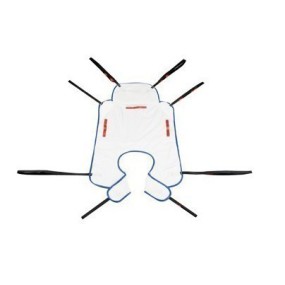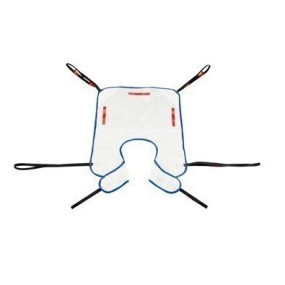Rota Stand Solo - LOCO-311
Rota Stand SOLO - LOCO-311. Designed to revolutionise sit-to-stand and pivot transfers. The patented T Bar mechanism in the base (see picture) allows a sit-to-stand and pivot transfer to be...
|
Medical Equipment
|
|
Profiling Beds
Bed Accessories
|
|
Mobility Aids
|
|
Patient Sensor Alarms
|
|
Active Pressure Care Systems
Static Foam Mattresses
Pressure Relief Cushions
|
|
Medical Scales and Measuring
|
|
Patient Moving and Handling
|
|
Patient Comfort and Care
|
|
Infection Control for Healthcare
|
|
First Aid Kits
First Aid Consumables
|
|
About us
Privacy & GDPR
Terms and conditions
Delivery Information
Rules regarding VAT exemption
|
Filter By
Price
Price
£112.00 - £143.00
Material
Material
Best sellers
Rota Stand SOLO - LOCO-311. Designed to revolutionise sit-to-stand and pivot transfers. The patented T Bar mechanism in the base (see picture) allows a sit-to-stand and pivot transfer to be...
The Locomotion Patient Turner - LOCO-501. Designed to facilitate a dignified transfer enabling a person to travel safely over short distances from one seated position to the next. Promotes safe...
Maxi-Mover Quilted Slide Sheet A full-body-length quilted cylinder with a low-friction inner surface allows patients to be transferred or repositioned without the need to lift. The MAXI-MOVER /...
Evolution Catering First Aid Point - Blue Case (Small) The Evolution Catering First Aid Point in a Blue Case is a comprehensive solution tailored for catering and food-handling environments,...
Locomotor Patient Handling Sling by Select Healthcare A general-purpose sling with a small toileting aperture and suitable for most hoist transfers. The Locomotor Sling is also available in two...
Deluxe Patient Handling Sling by Select Healthcare A deluxe sling with a small toileting aperture and suitable for most hoist transfers. The Locomotor Sling is also available in two materials:...
Patient slings are fabric support systems used with patient hoists to lift or move individuals safely, available in various designs including full-body slings providing comprehensive support for dependent patients, toileting slings featuring strategic cutaways enabling dignity-preserving toilet transfers, repositioning slings facilitating in-bed movement, amputee slings accommodating limb absence, limb support slings, bariatric slings providing reinforced support for larger patients, and specialist slings addressing specific clinical needs across hospitals, care homes, hospices, rehabilitation centres, spinal injury services, learning disability facilities, and domiciliary care throughout England, Scotland, Wales, and Northern Ireland. These essential patient handling components work integrally with hoisting equipment ensuring safe comfortable transfers, serving hospital wards managing immobile patients, intensive care units treating critically ill individuals, care homes supporting residents unable to transfer independently, hospices maintaining dignity during palliative care, spinal injury services managing paralysed patients, learning disability facilities accommodating individuals with complex needs, and home care enabling people to remain at home, meeting Health and Safety Executive manual handling regulations, LOLER compliance requirements, and supporting safe dignified care across all UK care sectors.
Appropriate sling selection directly affects patient safety, comfort, and dignity during hoisted transfers, with incorrect slings creating risks including inadequate support causing falls, pressure concentration causing discomfort or tissue damage, poor positioning compromising airway or circulation, and dignity compromise during toileting transfers across hospitals, care homes, hospices, and community care throughout the UK. Sling types address specific transfer requirements and patient needs. Full-body slings provide comprehensive support from head to thighs suitable for dependent patients unable to support trunk or hold sitting position, used for bed to chair transfers, general lifting, and patients lacking trunk control. Toileting slings feature open-leg designs or strategic cutaways enabling toilet access whilst remaining in sling, supporting dignity during commode or toilet transfers without removing slings completely. Repositioning or in-bed slings facilitate moving patients up the bed or turning without full lifting. Amputee slings accommodate single or bilateral limb absence through modified designs. Bariatric slings feature reinforced fabrics, extended sizing, and increased safe working loads supporting larger patients safely and comfortably. Sling fabrics include mesh materials enabling bathing, padded options providing comfort, disposable infection control options, and standard washable fabrics. Correct sizing ensures safety and comfort throughout England, Scotland, Wales, and Northern Ireland.
Select appropriate patient slings following individual assessment by physiotherapists, occupational therapists, or trained moving and handling coordinators considering patient needs, clinical conditions, and transfer scenarios across hospitals, care homes, hospices, rehabilitation facilities, spinal injury services, and domiciliary care throughout the UK. Assessment determines suitable sling types considering patient size and weight requiring appropriate sling dimensions and safe working load, trunk control and head control affecting whether full-body support necessary, transfer purposes determining general, toileting, or repositioning requirements, skin condition indicating whether padded slings needed, continence status affecting toileting sling requirements, and infection control needs determining disposable or washable options. Ensure correct sizing following manufacturers' guidelines typically based on patient weight and height, with improper sizing creating safety and comfort problems. Slings require compatibility verification with hoists confirming loop configuration, attachment points, and safe working load compatibility. All slings need regular inspection checking fabric integrity, stitching condition, and loop security, with damaged slings removed from service immediately. Laundering follows manufacturers' instructions maintaining fabric properties and infection control. Staff training ensures correct sling selection, proper patient positioning, secure attachment to hoists, and safe transfer procedures. Quality sling provision supports CQC assessment of care homes evaluating safe patient handling, NHS patient safety standards, demonstrates LOLER compliance, and enables safe dignified transfers protecting both patients and carers throughout England, Scotland, Wales, and Northern Ireland.
caresupplies.co.uk uses cookies to enhance your browsing experience during your time on this website. I'm OK with this and happy to continue.



